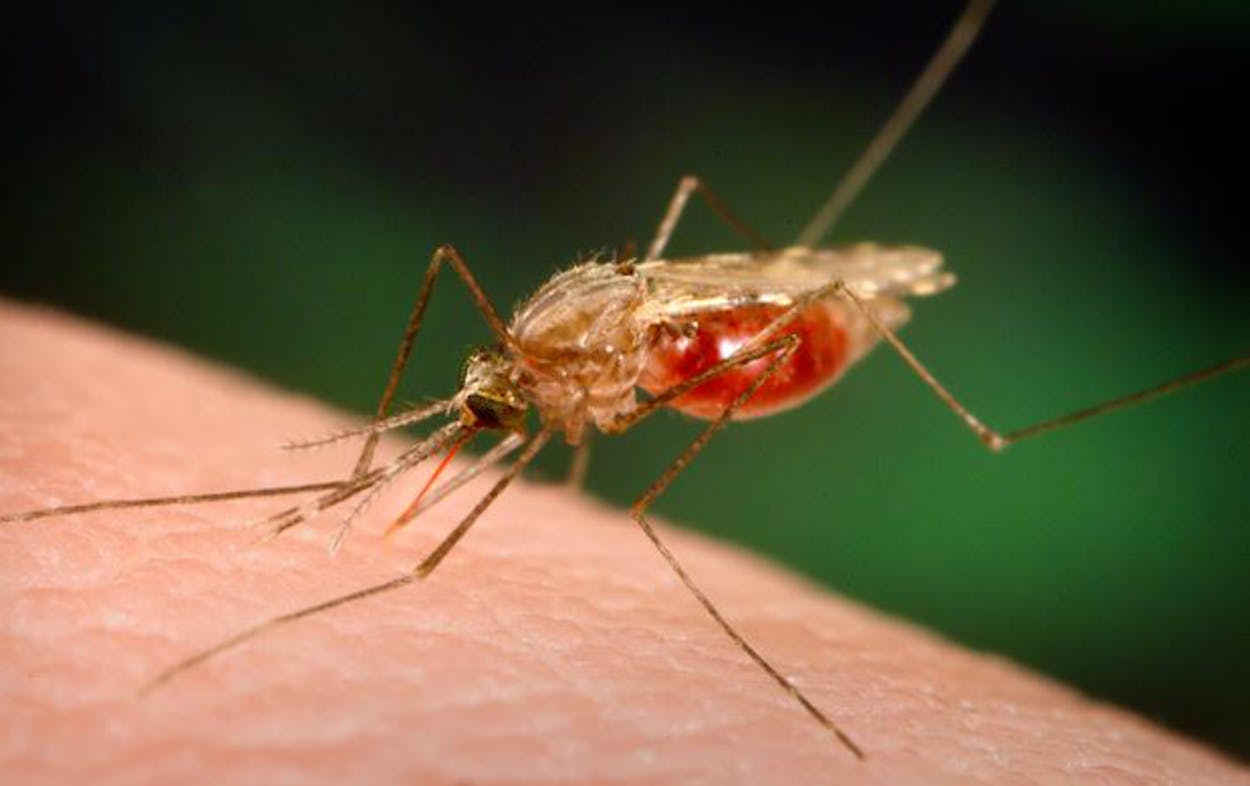Texas researchers are doing their part to fight a strain of drug-resistant malaria by monitoring the spread of the parasite and mapping the resistant bug’s genes.
Don Finley of the San Antonio Express-News describes the research of the San Antonio-based Texas Biomedical Research Institute, which published two malaria studies this week in the journals Lancet and Science.
A strain of malaria found around the Thailand-Cambodia border is resistant to artemisinin, the most effective antimalarial drug. Researchers announced Thursday that the strain, despite desperate efforts to contain it, has worsened and spread. Health officials now worry that this strain could advance throughout Asia and Africa.
“If resistance to artemisinin were to spread to sub-Saharan Africa, the result could be a ‘public health disaster,'” Bryan Walsh wrote at Time‘s Healthland. Some 655,000 people died of the disease worldwide in 2010.
Researchers from Texas Biomed have spent the last ten years studying some 3,200 malaria patients in northwestern Thailand and found the speed at which the parasite is eliminated from the body has slowed, Finley wrote.
“We have now seen the emergence of malaria resistant to our best drugs, and these resistant parasites are not confined to western Cambodia,” said co-author Dr. François Nosten, director of the Shoklo Malaria Research Unit in Thailand. “This is very worrying indeed and suggests that we are in a race against time to control malaria in these regions before drug resistance worsens and develops and spreads further. The effect of that happening could be devastating.”
In the second study, the scientists compared the genes of parasites that can be easily killed by the drugs to genes of the resistant parasites, and identified a “small segment on the 13th chromosome” as the culprit. The researchers hope this information will help them develop “a test to monitor how fast and how far drug-resistant malaria is spreading,” Finley wrote.
But this isn’t the only interesting malaria research currently afoot in Texas: Texas A&M researchers have tweaked the genes of a goat so that it produces milk containing a malaria vaccine.
Goat number 21, as she is lovingly called, lives in the Texas A&M Reproductive Sciences Complex, Shane McAuliffe reported for KBTX News. She could be the “golden goose when it comes to preventing malaria in third world countries,” McAuliffe said.
“What you’d have is an animal that could be in any village around the world and all natives would have to do is drink some of that milk and be immunized against malaria,” said researcher Charles Long.
But, first, clinical studies will need to be conducted on the vaccine’s efficacy and safety.
“We’d love to start air dropping goats into Africa but the reality is we’re not going to be able to achieve that objective for another five or 10 years at least,” Long said.







